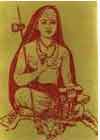
Great
spiritual leaders, like Jesus, or Mohammad, or Nanak (and scientists and poets
such as Einstein and Kalidas), have enhanced and heightened human consciousness
and stand at the highest end of the spectrum. Genocidists like Hitler, Stalin
and Pol Pot (and terrorists who kill innocent people, and those who violate the
bodies and minds of the helpless and the innocent) negate consciousness, to the
point of extinction in the most extreme cases, and stand at the lowest part of
the spectrum which brackets both saints and sinners, angels and demons. -- Jug
Suraiya
By Jug
Suraiya
Two
sex scandals - both involving religion - are doing the rounds. One is about the
revelations of widespread paedophilia in the Roman Catholic church, and the
alleged attempts by the Vatican to hush up the matter. The other, on a far
smaller scale, concerns Swami Nithyananda, the guru who was caught on video
having a romp with a couple of young women.
The
'scandal' of Nithyananda is of course not a scandal at all. A needless brouhaha
has been created about self-styled 'godmen' who turn out to be satyrs in holy
garb, sinners disguised as saints. Such distinctions would be meaningless both
for the hedonist as well as the spiritualist. In Tantricism, for instance, to
name just one spiritual discipline, sex is only a means to attain a higher level
of consciousness, as are alcohol and narcotics, both of which are commonly
viewed as vices.
However,
the Catholic church's cover-up of alleged paedophilia and the 'sex guru' episode
might revive that old chestnut: the nature of 'good' and 'evil', the difference
between saints and sinners, angels and demons. Are good and evil polar
opposites, implacable adversaries, like matter and anti-matter, absolute in
themselves? That was the heretical Manichean worldview. This presented the
problem of two absolutes, good and evil, or two infinities, which is a logical
impossibility. In orthodox Christian theology, evil is not absolute in itself;
it is an absence, a retraction of the good, the way a shadow is the lack of
light. But this means that absolute good, or infinity, can be restricted, which
again is logically impossible.
In
the Indic perspective, good and evil aren't two sides of the same coin; they are
the same side of the same coin. Or, to use the analogy of light, good and evil
represent the two ends of the same spectrum, which ranges from infrared to
ultraviolet. Seen in this light - both literally and metaphorically - good and
evil are part of the same continuum, but at different margins of the same
scale.
The
scale can be said to be graded in terms of consciousness: that which enhances
consciousness is at the upper end of the scale, or spectrum; that which reduces
consciousness is at the lower end. That which heightens consciousness is what we
call 'good' that which restricts or negates it is what we call
'evil'.
A
work of art, an elegant mathematical equation, a melody, the words of a poet or
a seer represent the good, in that they add to, and raise, the sum total of
consciousness; they belong to the ultraviolet end of the spectrum. Acts of
violence, such as rape (particularly paedophilic rape, which is what the Vatican
scandal is about) murder, and torture, are evil in that they subtract from the
sum total of consciousness, they debase consciousness; they belong to the
infrared end of the spectrum.
Great
spiritual leaders, like Jesus, or Mohammad, or Nanak (and scientists and poets
such as Einstein and Kalidas), have enhanced and heightened human consciousness
and stand at the highest end of the spectrum. Genocidists like Hitler, Stalin
and Pol Pot (and terrorists who kill innocent people, and those who violate the
bodies and minds of the helpless and the innocent) negate consciousness, to the
point of extinction in the most extreme cases, and stand at the lowest part of
the spectrum which brackets both saints and sinners, angels and
demons.
Between
these two ends of the human spectrum lies the undifferentiated light of the
everyday, of the mundane, the moral compass within which the great majority of
us live. Neither saints nor sinners, neither angels nor demons, but somewhere in
between, safe in our mediocrity. But with the potential in our day-to-day lives
to side with the one or the other, to move even fractionally, minimally, to one
side or the other of the spectrum of good and evil.
How?
Through our thoughts and actions, or the lack of them. What we say, what we do,
what we think: does it add to or subtract from the realm of consciousness, does
it expand or narrow that horizon? Are we on the side of the saints or the
sinners, the angels or the demons? Both possibilities are within us.
What'll
we choose to be today?




 Sultan Shahin
Sultan Shahin


0 comments:
Post a Comment